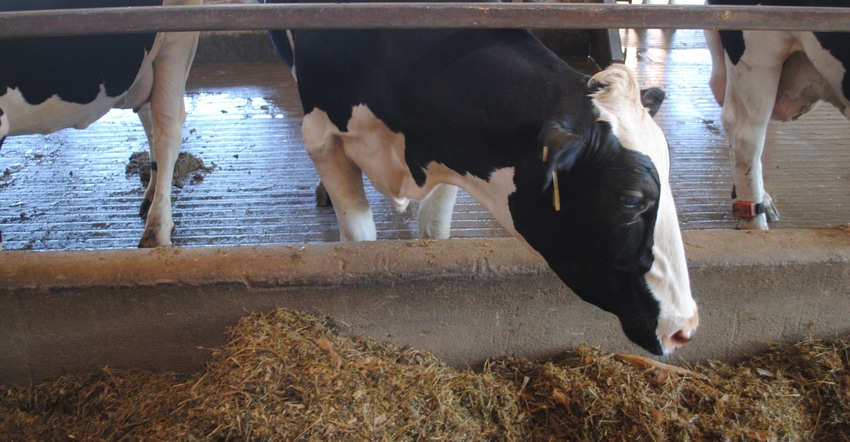
I-29 Moo University will be focusing on forages in dairying during its annual winter workshop series in early January.
With an upcoming session for Jan. 12 at the Lifelong Learning Center on the Northeast Community College campus in Norfolk, Neb., producers will learn to incorporate cover crops and new forage genetic lines into their forage production systems.
Sessions will also cover an understanding of how to properly work cover crops and forages into dairy rations and how to improve dairy and labor management skills in feeding management and safety protocols.
Topping the list of speakers this year is Nebraska Extension forage specialist Bruce Anderson, who will speak on new forage genetic lines and what they mean to dairy producers. Sessions specifically on cover crops will be offered by South Dakota State University Extension agronomy field specialist Sara Berg and forage specialist and nutritionist James Paulson.
“Dairy producers are planting cover crops,” says Kim Clark, dairy Extension educator. “It is about the timing of when to plant cover crops and which cover crops or combination of cover crops to plant,” she says. “When planting cover crops, you don’t want to change the planting and harvesting of corn and soybeans, so you work around those growing seasons. Determining which cover crops, combination of covers and variety to plant are the challenges. And some producers chop cover crops for ensiling or harvest the cover crop to feed at the dairy,” Clark says. “Then, the issues are how to feed the cover crops in the dairy ration and which feedstuffs should be replaced.” Producers are also asking at what level they should feed cover crops.
I-29 Moo University workshops seek to answer these and other questions related to forages, Clark says. “On average, we get 150 producers, industry colleagues and students attending these sessions throughout the week at different locations,” she says. “Although these programs are geared to dairy producers, the presentations will discuss forages and cover crops, so any grower interested in these topics will benefit from the information.”
The dairy industry in Nebraska continues to gain steam. “In our region, we are seeing some existing dairies grow and expand,” Clark says. “Some are expanding their current cow herd, while others are installing milking robots and growing in milking numbers after the milking robots are up and running,” she explains. “If you look at the numbers, Nebraska is down in the number of dairy farms, but our milking cow numbers continue to increase. For new dairies to come into the state, we need a processor in the state first. Our greatest challenge is finding a place for the milk. Until we have a processor, it is an obstacle for growth through new dairies.”
Related topics during the workshops will include silage pile safety training and evaluating dairy diets from nutritionist to employees to the cow. Other locations besides the Jan. 12 site in Norfolk for the workshop series include Mandan, N.D., Jan. 8; Watertown, S.D., Jan. 9; Pipestone, Minn., Jan. 10; and Orange City, Iowa; Jan. 11. Each workshop begins at 9:30 a.m. and closes at 3:30 p.m. Registration by Dec. 29 is $50 per person and $25 for students. Late registration is $65 per person and $30 for students. The 2018 Nebraska Dairy Convention is Feb. 27 in Columbus. Learn more by contacting Clark at 402-472-6065 or email [email protected].
About the Author(s)
You May Also Like






